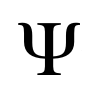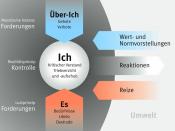Psychoanalytic, Neoanalytic, Jungian, and Individual Psychology Theory
�
Nowadays, people begin to understand that the knowledge of human psychology plays a great role in the everyday life. It means that basic understanding of different psychological concepts gives a key to the apprehension of the inner world of every person. Today, there are many theories that help to determine the personality of every client and find solutions for every problem.
One of such theories is the psychoanalysis. It lies in the researches of the human minds and the principles of its working. Main theorists, S. Freud and J. Breuer, emphasized the role of the childhood memories in explaining of different fears and psychological problems of the clients. In fact, S. Freud singled out three components of a human mind. They are id, ego, and superego. The Id is that part of the personality, on which the instinctual drives and needs have a great impact.
This aspect is very unstable and dynamic. In other words, it is unmanageable as it is ready to satisfy all demands and avoid pain and problems in any way. Therefore, there is the other element called ego. It deals with the realistic purposes and tries to slow down the impulsiveness of the id. Ego balances between the instinctive drives and realistic principles trying to achieve as many benefits as possible. However, there is a third element superego. It deals with the morality principles. In fact, superego makes instinctive needs and drives reflect in the socially accepted ways. Morality principles and social laws limit the individual's desires to satisfy basic needs (Masling, 1990).
The other basic key term of this theory is the concept of unconscious. Individuals are not aware of the existence of this aspect of personality. However, it rules human's emotions, feelings, thoughts, and deeds.


